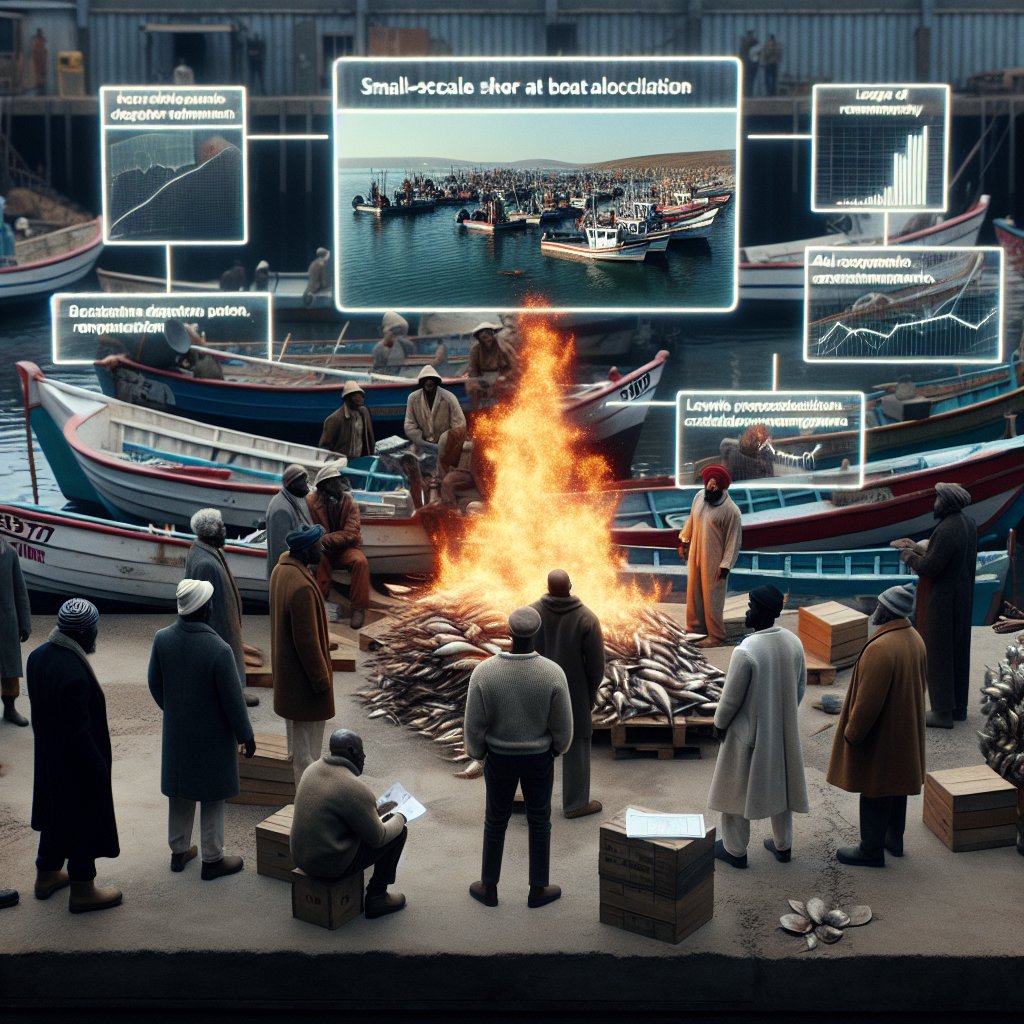Image created by AI
Small-Scale Fisherfolk in South Africa Gear Up for Legal Battle Over Insufficient Boat Allocations
Small-scale fishers in South Africa are on the verge of initiating legal action against the Department of Forestry, Fisheries, and the Environment (DFFE), challenging the inadequacy of boat allocations for their communities. The contention arises from the department's decision, revealed on 4 March, to assign 377 boats across various fishing communities—a figure small-scale fishers say is grossly insufficient for the 12,000 recognized fishers nationwide.
Regions like the Eastern Cape with 5,335 fishers and KwaZulu-Natal with 2,182 fishers too find their share of boats significantly wanting, with only 12 and six allocated vessels, respectively. Specific cooperatives, such as the Aukotowa cooperative from Port Nolloth, saw drastic reductions in their allocations, triggering an outcry from their respective communities and chairs like Walter Steenkamp, who fear for the sustainability of their livelihoods.
The LRC, representing the fishers, accused the DFFE of not revisiting their allocation strategy in light of the substantial increase in the number of fishermen and cooperatives. The underlying concern emphasizes that the policy intended to bolster recognition of small-scale fishers appears to be failing in that regard.
In response to the department's allocations based on "equitable distribution" and "scientific recommendations," Masifundise Development Trust, an advocacy group for fishers, has condemned the allocations as "significantly less" than necessary. The trust highlights that linefish are essential to the year-round livelihoods and food security of fishing communities.
Even with promises from Minister Barbara Creecy to establish a Consultative Advisory Forum for sustainable resource management and equitable access, the small-scale fishers are not placated, as their immediate reality involves a critical shortfall in vessel allocations, potentially escalating to legal recourse if the department doesn’t reconsider the distribution.










